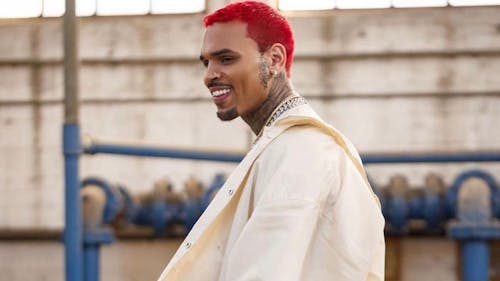In 2022, separating art from artists is no longer possible — or conscionable

Being in a position of power is something that people can easily take advantage of, and that is something that many prominent musical artists do behind the scenes.
When someone has some sort of power or status above another person, that can be easily manipulated to get them what they want. This behavior is absolutely appalling, but we’ve seen it happen time and time again, especially in Hollywood.
We’ve seen it happen throughout the years: A star that we all know and love does something completely awful, yet it somehow gets swept under the rug as if it never happened in the first place.
People behind the scenes in Hollywood are pros at covering up controversies at this point, as the protocol for saving someone’s career is somehow greater than the morality of exposing their disturbing behaviors.
Recently, famous alternative and indie artist Rex Orange County has publicly come under fire for allegedly assaulting a woman on six different occasions. The singer, whose real name is Alex O’Connor, has denied the allegations and pleaded not guilty to all six charges in court.
These allegations have re-sparked a conversation online around the protocol for what to do when an artist is involved in a serious controversy.
The real question is: Can the artist truly be separated from their art?
One of the first instances I can recall of this moral dilemma happening in my life was when Chris Brown assaulted his then-girlfriend and pop culture icon Rihanna.
In 2009, I personally had a great love for both Brown and Rihanna, as I loved both of their discographies as artists, so when the news broke, I was absolutely shocked. I immediately began to boycott Brown and to this day have completely refused to listen to any of his music.
Instances like these have happened countless times over the years, and it has always caused this conversation to resurface in the public sphere.
Another recent example of this happening was with famous rapper DaBaby. During the peak of his career, DaBaby made some disgusting and extremely controversial comments during a performance at Rolling Loud Miami last year.
DaBaby’s career was relatively short-lived, as he began to really blow up from TikTok in 2020. With hits like “Rockstar” and “Levitating,” DaBaby was beginning to gain traction in the music industry and was even nominated at the Grammys eight times.
After he decided to make a slew of homophobic and misogynistic comments at Rolling Loud, he was almost immediately canceled by the general public, which is completely warranted based on the things he said.
After instances like this, the overarching conversation on who we can support always tends to come back up. Fans of these now-controversial artists must think deeply about their own values and morals and decide if they can truly continue to support their favorite artists.
It all comes down to personal values and what people find to be morally right and wrong. While some people with homophobic and misogynistic values may not care about DaBaby’s comments, many other fans may be personally offended by what he said, leading to a mass cancellation of an artist.
After all the dust settles from a controversy, the question arises: Can I continue to listen to this artist happily, knowing that they’re an awful person? For many, the answer is usually no, but some people tend not to care, as they can disconnect the artist’s personality from their music.
I believe that while some people may be able to do this, it’s extremely difficult in today's world. We live in a time where artists are more prominent on social media than ever before, giving us a daily glimpse into their lives and creating a manufactured feeling that we’re their friends
Because social media is such a huge part of our lives, artists have been tasked by their labels with remaining active on platforms like Instagram and TikTok to create a feeling of relatability and approachability.
This level of public persona and “friendship” makes it almost impossible to separate an artist from their music, as we’re constantly being bombarded with their face, lives and personalities on a daily basis.
While celebrity scandals and cancellations are never going to end due to the unfair power balance they have over others, we need to evaluate our morals as a society and as individuals to be able to determine if artists can truly ever be separated from their art.



